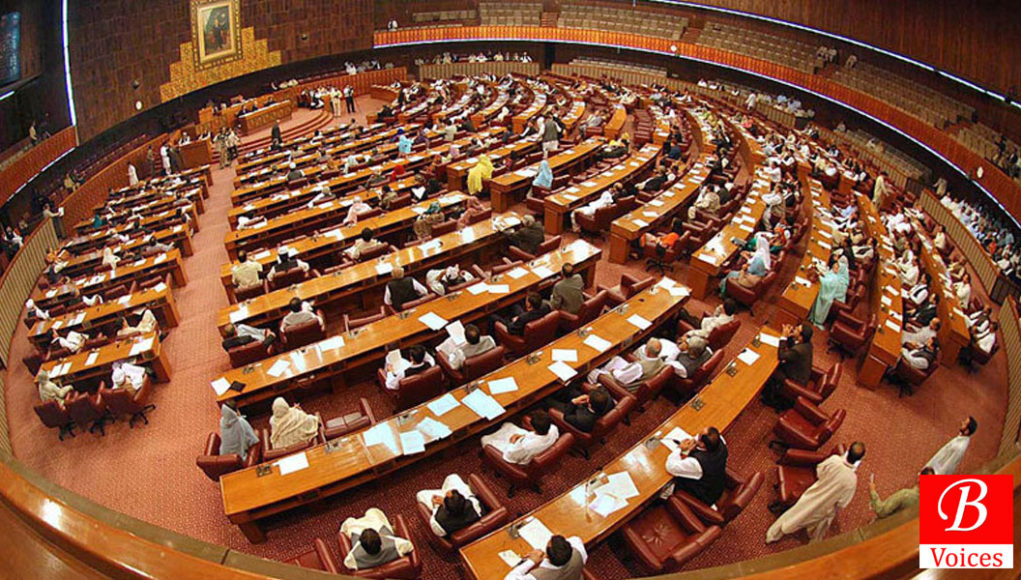 Suhail Khan Mandokhel
Suhail Khan Mandokhel
In Pakistan, for one, laws securing federation were looked at paranoically. However, long-lasting democratic tenure and independent media have enabled the support-base of federation to rally strength. In this vein, top-of-the-line role was played by 18th amendment arguably greatest hard-won constitutional asset in history of Pakistan. This amendment pulled the carpet from under the feet of wannabe sycophants of unitary state and minority complex in smaller provinces was cut short by a long shot.
In reams of words contained by 18th amendment, most-desired trope of smaller provinces ‘provincial autonomy ‘has foremost importance. Decentralization and devolution of ministries were actualized. Under this amendment, 17 ministries were devolved to the provinces. More than 100 articles were introduced changing 34% of constitution. It can rightly be argued that said amendment centupled the satisfaction of smaller provinces. It also called halt to “whataboutism” manifested by federation and provinces. Nevertheless, this constitutional amendment left many gaps and holes unfilled which it should have settled in the best interest of Pakistan. In my writing, I will elaborate these undented weak points of constitution.
Under 18th amendment, council of common interests was transferred to ministry of inter-provincial coordination. This majority-constraining body finds solutions of disputes based on power-sharing between federation and provinces. In practicality, though decisions of CCI are obiter dicta; yet it acts like a safety valve for channelizing frustrations of smaller provinces. This PM-led body comprises eight members wherein three federal ministers are nominated by PM under Article-153(2) of the constitution. Conventionally, this practice has always been to choose federal ministers in such a way to maintain provincial balance in CCI.
But the fact-of-the-matter is that nomination of federal ministers is contingent solely on the will of PM who, as history reveals, mostly belongs to either Punjab or Sindh. Thereafter, it is obvious that Balochistan and Khyber Pakhtunkhwa (KP) can never hold majority in CCI. According to clause of article 154, modus operandi of CCI is based on principal of majority. Keeping this fact in view, it can be argued that Balochistan and KP are always in disadvantaged position. At present, composition of CCI is glaringly off-putting for smaller provinces. Present PM has chosen two members; one each from Balochistan and KP while four members are from Punjab and two from Sindh. This imbalanced composition establishes that PM has slighted away the interests of smaller provinces. Members of KP and Balochistan are not more than sitting ducks in CCI. Eighteenth amendment should have declared provincial balance compulsory but it has left this issue unaddressed.
Another important issue, unsettled by 18t amendment, pertains to status of local bodies. Local governments have not been given the same status as other two-tiers of government. 17th amendment was retained in this regard. Resultantly, councilors have to rely on trickle-down of funds and don’t have tangible authority to solve the problems of people at their thresholds. Much-regurgitated complaint of local bodies is that: they are toothless and penniless. Legislators of 18th amendment had tremendous opportunity to unmake this complaint but due to inexplicable reasons, local government was not brought at par with other two tiers of government. Perhaps, Politicians are averse to local government due to its opportunistic usage by military dictators.
Furthermore, the 18th amendment provided provinces joint ownership of the state-owned natural gas and crude oil exploration and distribution companies. Under this amendment, petroleum ministry should have been replaced by directorate and provinces should have been given membership of OGDCL proportionate to their share in oil and gas production. On the contrary, OGDCL at present allocates 50 per cent Quota to Punjab, 20 per cent to Sindh, 14 per cent to KP and only 6 per cent to Balochistan. This off-kilter composition is akin to giving impetus to minority complex prevalent in smaller provinces. Pioneers of 18th amendment dealt this matter ineptly and thus, this oft-cited issue couldn’t have been solved once for all.
Notwithstanding these aforementioned points, the consensual idea held by provinces is that 18th amendment has no exact parallel in constitution and neither legal document can’t outcompete it anatomically. However, last but far from the least is the genuine implementation of this amendment that still needs fruition in letter and spirit.
Writer is a student of LL.B (E) at International Islamic University, Islamabad and hails from Zhob, Balochistan. He tweets at @SuhailMandukhel
Disclaimer: Views expressed in this article are those of the author and Balochistan Voices not necessarily agrees with them.
Share your comments!








